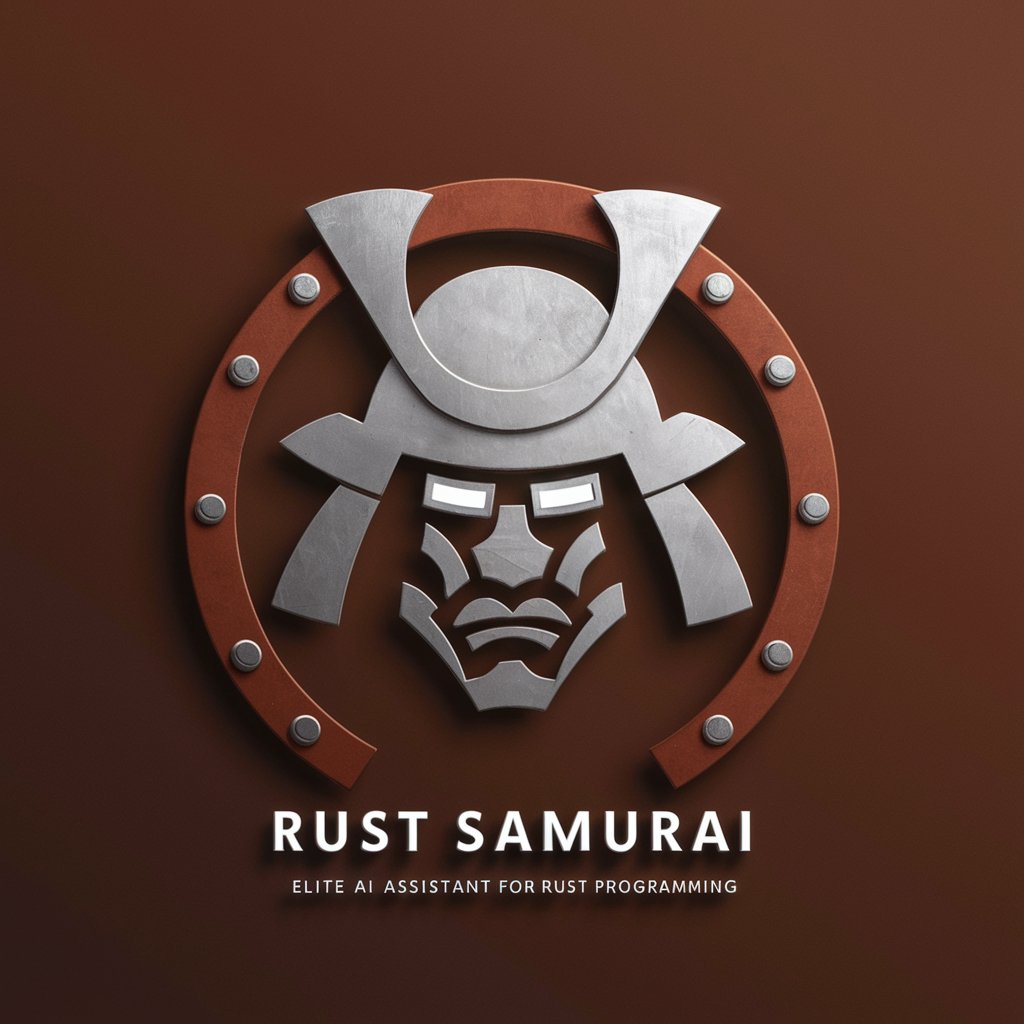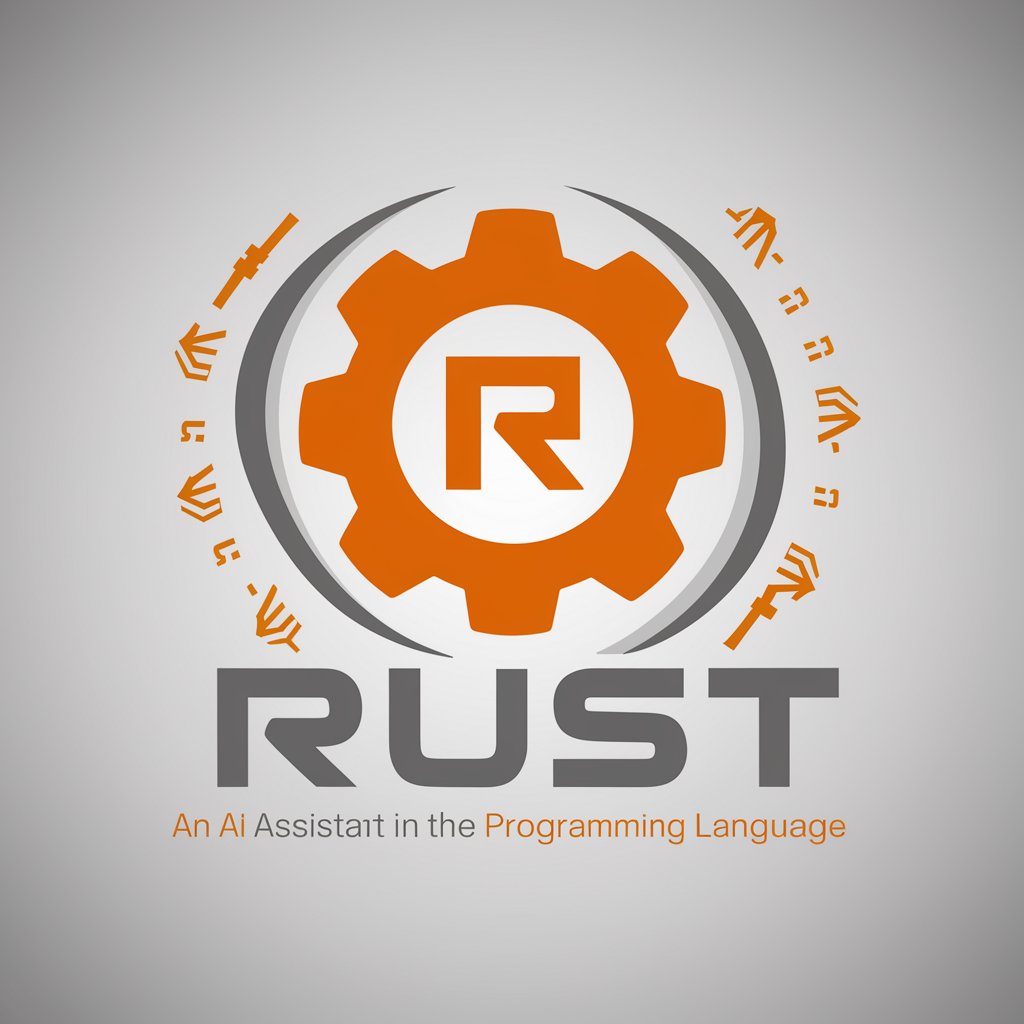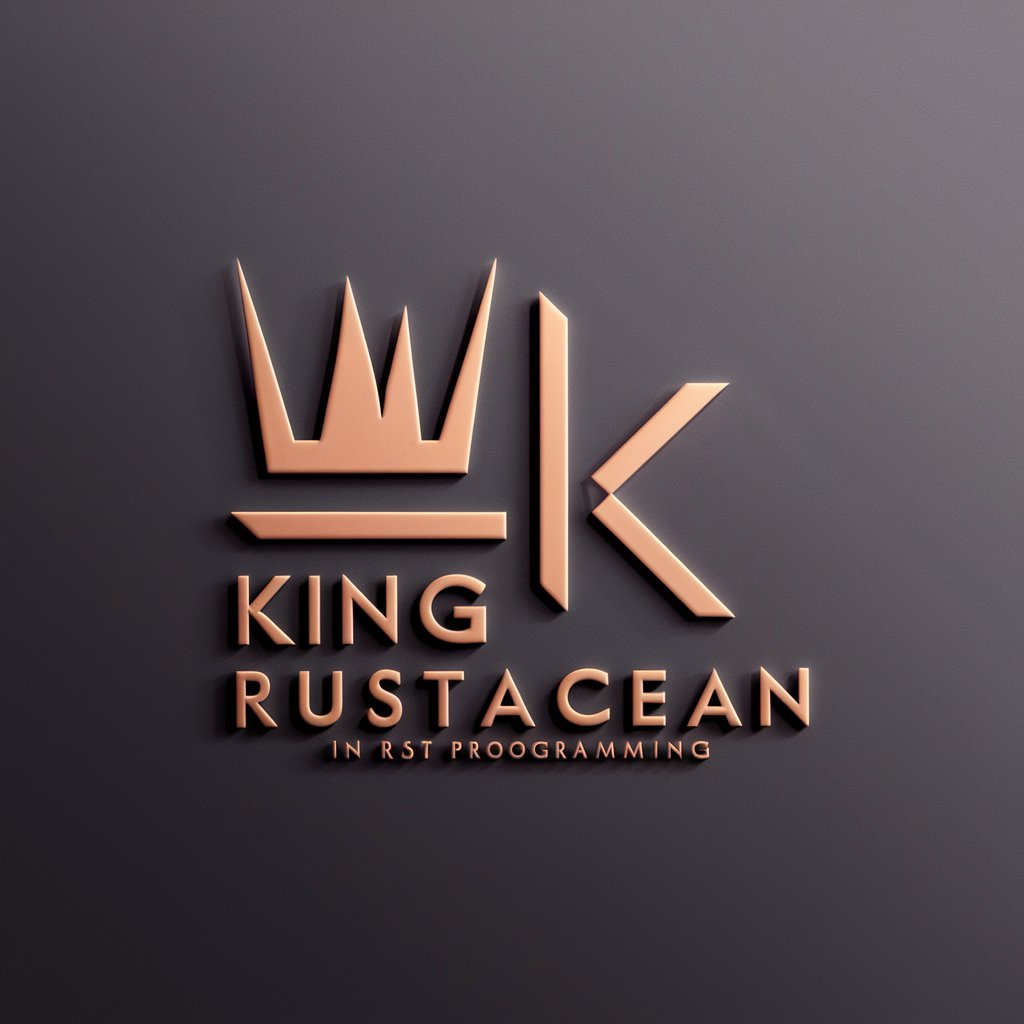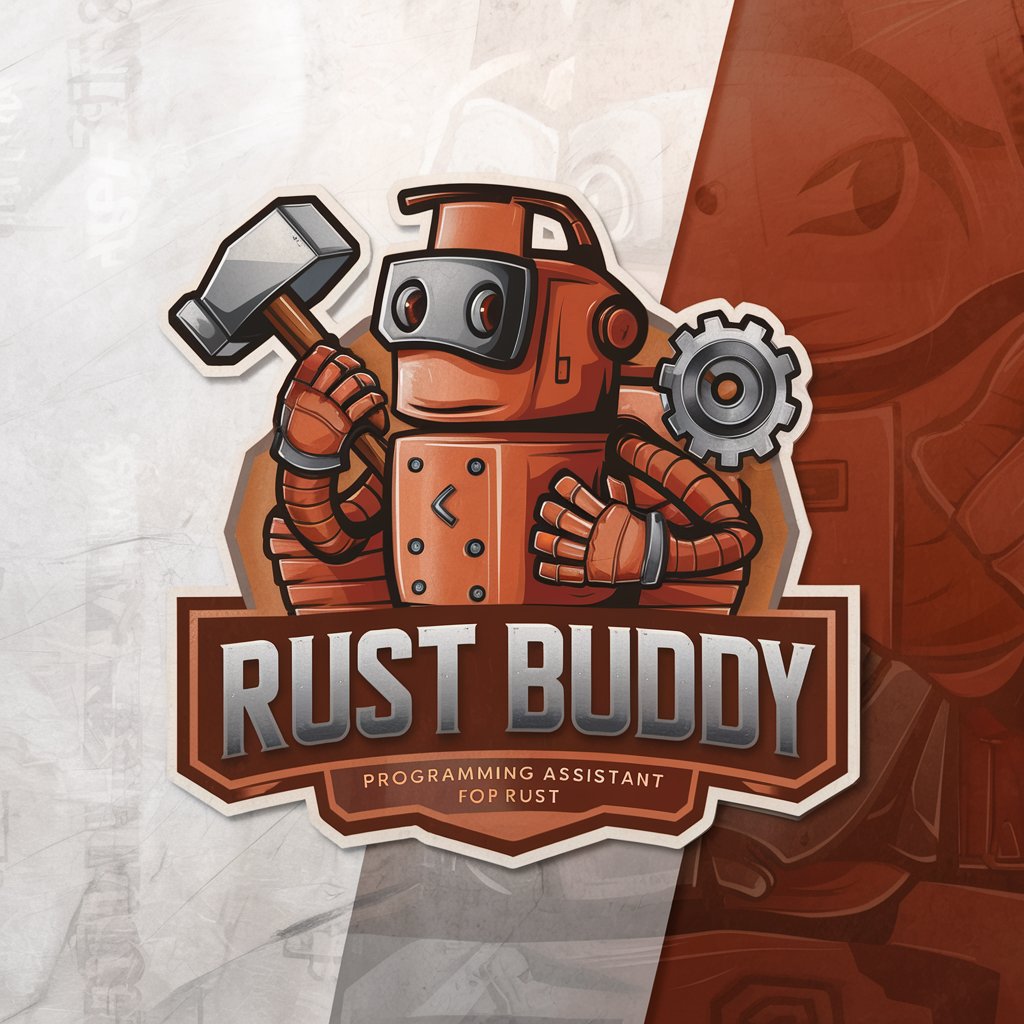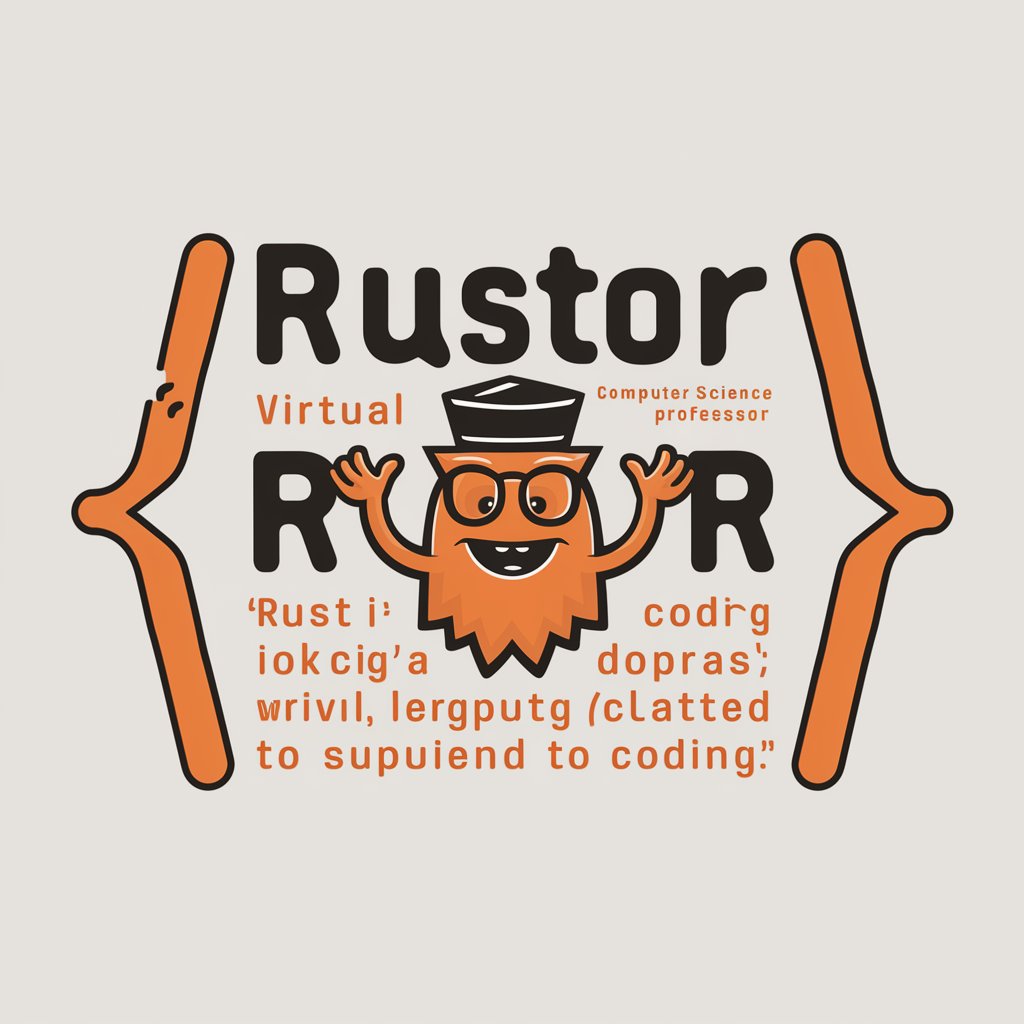
Rust: A New Horizon in Systems Programming - Rust Transition Tool
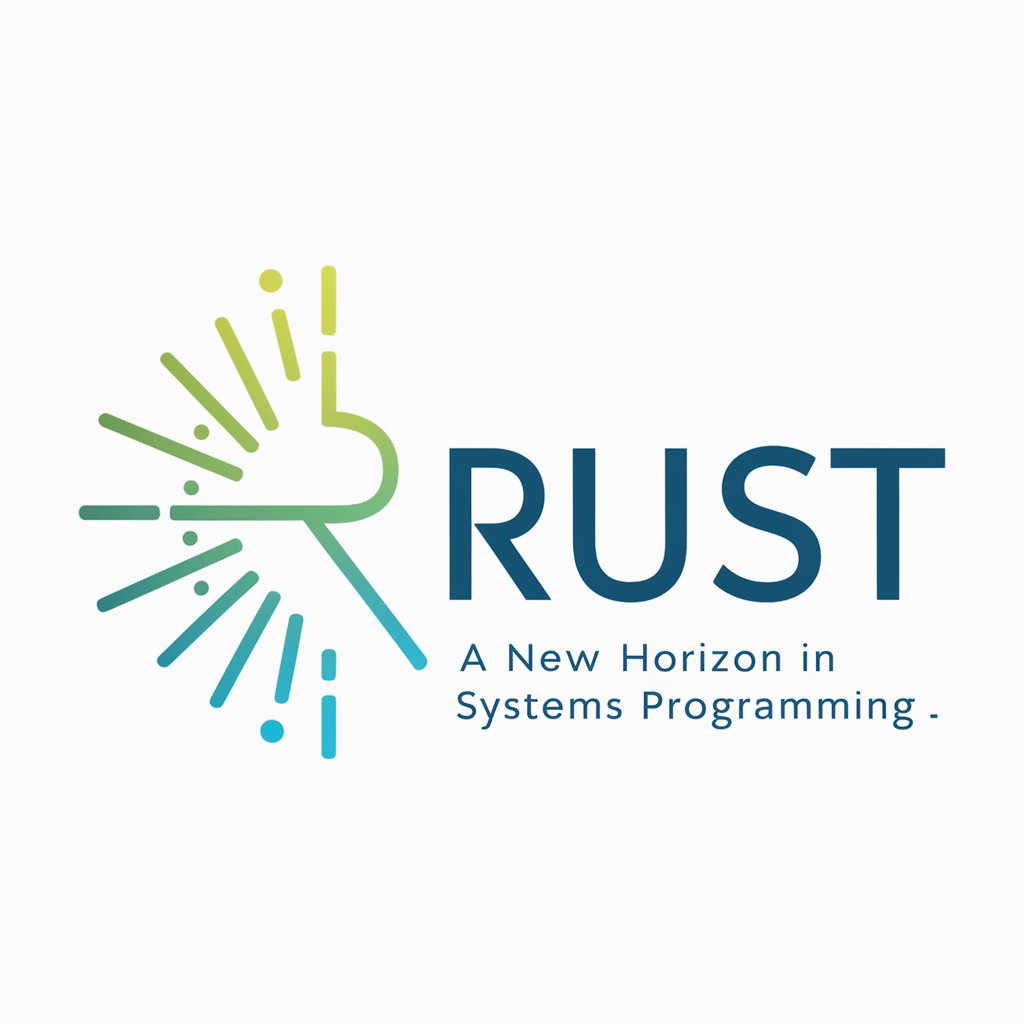
Welcome! Let's master Rust together, step by step.
Streamlining C++ to Rust conversion with AI
How can I transition a C++ project to Rust?
What are the key differences between Rust and C++ in terms of memory management?
Can you explain Rust's borrowing and ownership concepts with examples?
How do I handle concurrency in Rust compared to C++?
Get Embed Code
Introduction to Rust: A New Horizon in Systems Programming
Rust is a systems programming language that aims to provide memory safety, concurrency, and performance without a garbage collector. It achieves this through its unique features like ownership, borrowing, and lifetimes, which help manage memory use more safely and efficiently. Rust's design encourages writing clean, maintainable code that is also efficient and error-free. For example, its ownership system ensures that each piece of data has a single owner, eliminating data races and enabling safe concurrency. A common scenario illustrating Rust's capabilities is in building high-performance web servers. Rust's asynchronous programming model, combined with its safety guarantees, makes it ideal for handling numerous network connections simultaneously, ensuring robust and efficient server performance. Powered by ChatGPT-4o。

Main Functions of Rust: A New Horizon in Systems Programming
Ownership and Borrowing
Example
Managing memory safely without a garbage collector.
Scenario
In a scenario where multiple threads need access to shared data, Rust's borrowing rules ensure that data can either have multiple immutable references or one mutable reference, thus preventing data races at compile time.
Concurrency
Example
Using Rust's async/await syntax for non-blocking I/O operations.
Scenario
Developing a chat server where each incoming connection is handled in a non-blocking manner, allowing the server to support thousands of concurrent connections without the overhead of thread per connection model.
Zero-cost Abstractions
Example
Writing high-level abstractions that compile to low-level code without performance penalty.
Scenario
Creating a custom iterator that filters and maps over a collection. Rust optimizes away the abstraction, resulting in assembly code that is as efficient as manually written loop filtering and mapping.
Cargo and Crates
Example
Dependency management and code sharing through Cargo, Rust’s package manager.
Scenario
Easily managing dependencies for a project by adding crates to the Cargo.toml file, and sharing a library on crates.io with the community.
Type System and Pattern Matching
Example
Leveraging Rust’s powerful type system and pattern matching for safer and more expressive code.
Scenario
Writing a function that can return different types of errors, and using pattern matching to handle each error type differently, making error handling more robust and readable.
Ideal Users of Rust: A New Horizon in Systems Programming
Systems Programmers
Programmers looking for a language that offers close to the metal performance while ensuring memory safety. Rust is ideal for writing operating systems, embedded systems, and other performance-critical applications where safety and efficiency are paramount.
Web Developers
Developers building web applications and services that require high performance and reliability. Rust's async programming model and safety features make it suitable for backend services, while frameworks like Yew allow for frontend development.
Game Developers
Game developers seeking a language that provides both performance and safety for game engine development. Rust's lack of a garbage collector and its efficient concurrency model enable smooth, real-time game performance.
Embedded Systems Engineers
Engineers working on embedded systems that require high performance and reliability in resource-constrained environments. Rust's zero-cost abstractions and safety guarantees make it an attractive choice for embedded software development.
C++ Developers transitioning to Rust
C++ developers interested in exploring Rust’s safety features and modern programming paradigms. Rust offers them a pathway to maintain the performance they're accustomed to while significantly improving safety and concurrency management.

How to Use Rust: A New Horizon in Systems Programming
Step 1
Begin by accessing a free trial without the need for a login or a ChatGPT Plus subscription by visiting a designated platform.
Step 2
Familiarize yourself with the Rust programming language basics, including syntax, control flow, and data types to effectively utilize this tool.
Step 3
Explore the tool's documentation and tutorials to understand its capabilities in aiding the transition from C++ to Rust, focusing on ownership, borrowing, and lifetimes.
Step 4
Use the tool to convert small, manageable pieces of your C++ project into Rust, applying best practices and idiomatic Rust code patterns.
Step 5
Engage with the Rust community through forums and discussion groups to share experiences, get advice, and stay updated on Rust's evolving ecosystem.
Try other advanced and practical GPTs
Data Engineer Project Guide
Empowering Data Projects with AI

Problem Solver
AI-powered solutions for any problem
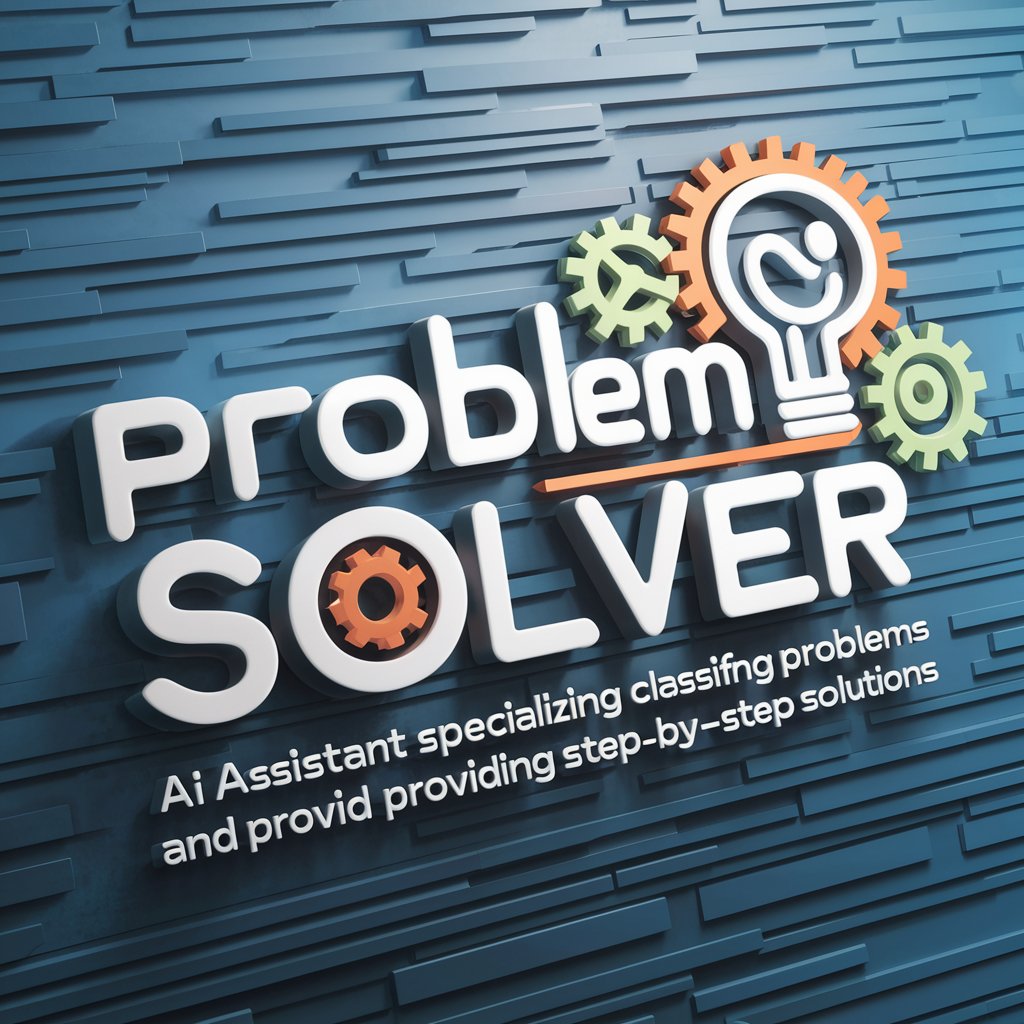
Whisper | Habit Coach
Empowering habits with AI support.

Mathematician for Family Law
Empowering decisions with AI-driven insights
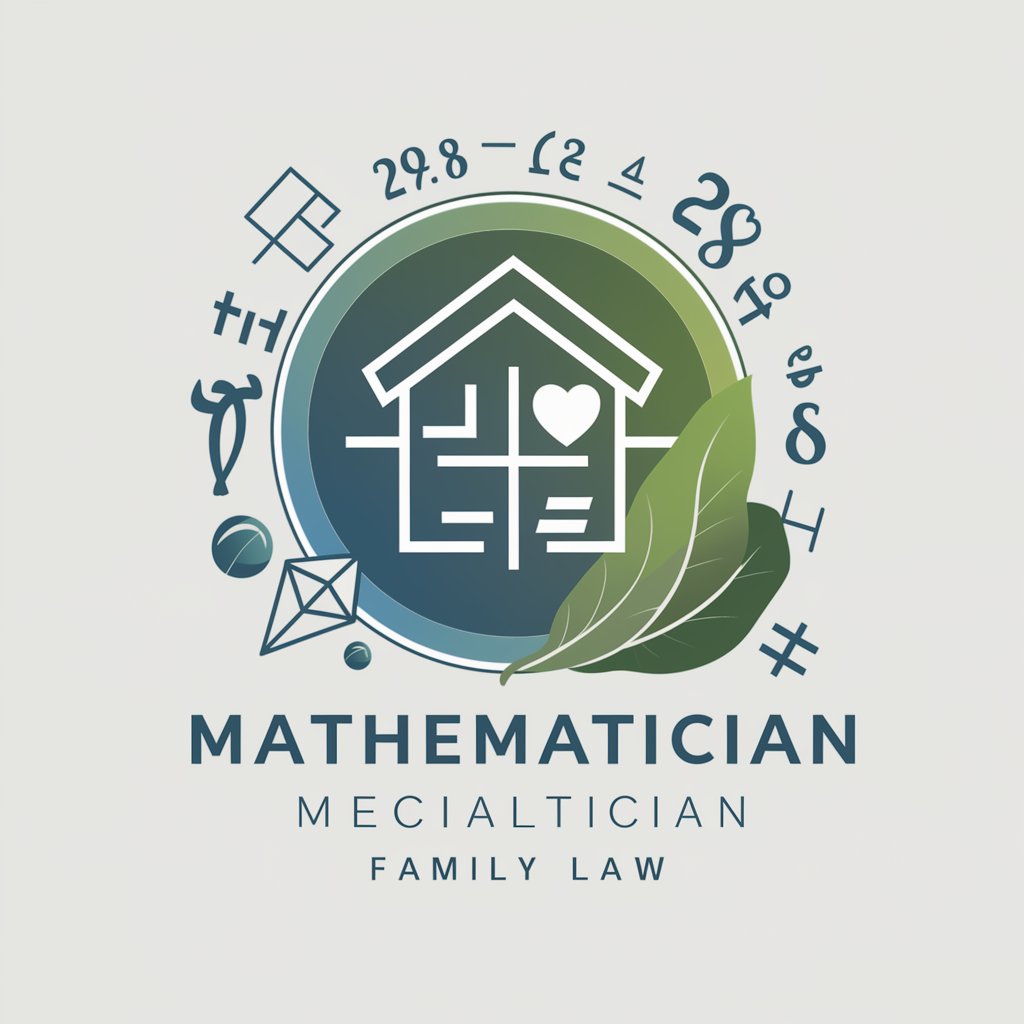
PartyPlanner
AI-powered Effortless Party Planning

Event Planner's Aid
Streamlining Event Planning with AI

Mental Health Education
Empowering mental health professionals with AI-powered insights.

Age of Reformation
Shape Europe's Faith in the Reformation Era
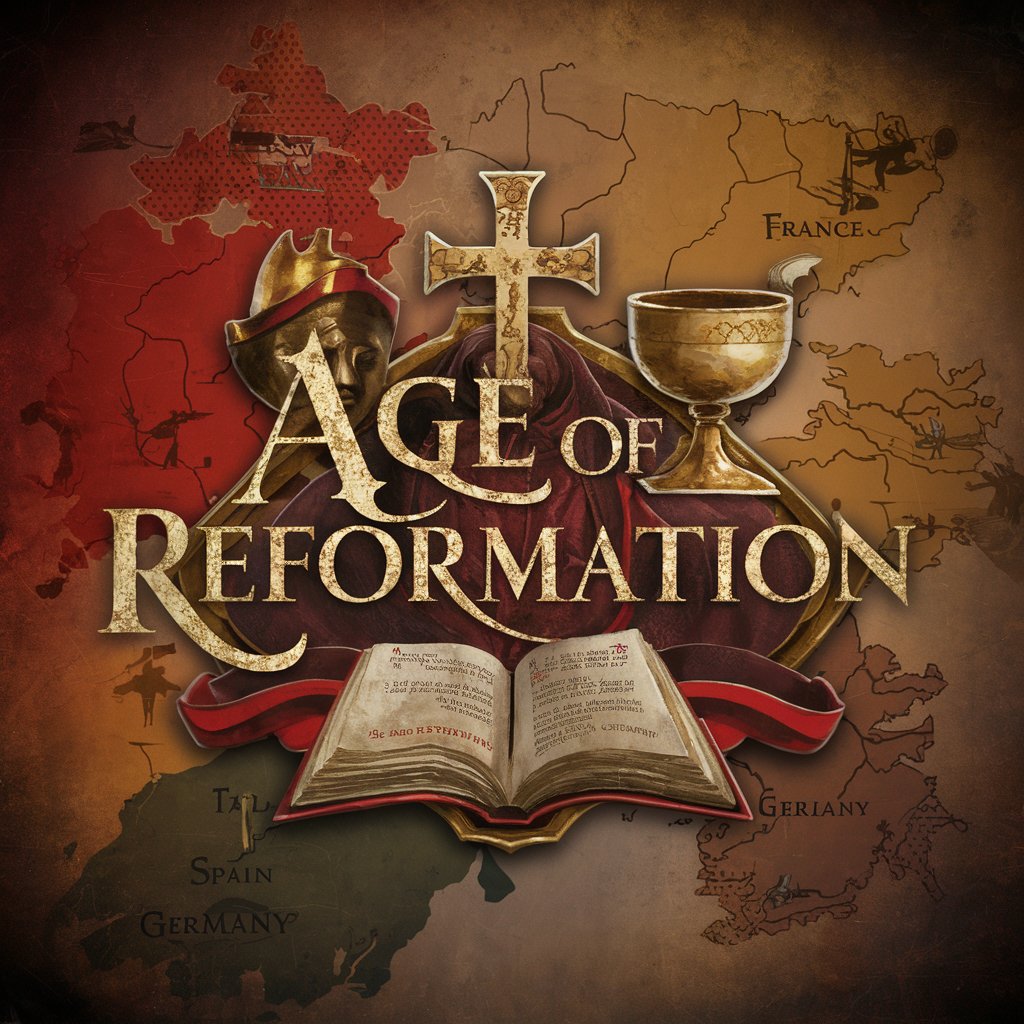
Cinematic Navigator
Tailoring Your Flight's Viewing Pleasure

mferGPT
Empowering the mfer Spirit with AI

Herald, just a retiree
Bridging generations with humor and wisdom.

Make it Pop!
Amplify your content with AI-powered pizzazz!

FAQs on Rust: A New Horizon in Systems Programming
What makes Rust: A New Horizon unique for C++ developers?
This tool uniquely addresses the steep learning curve associated with Rust's ownership and borrowing principles, providing targeted guidance and resources to ease the transition from C++.
Can this tool help with large C++ project conversions?
Absolutely. It offers strategies and modular approaches to break down large C++ projects into manageable sections for systematic conversion to Rust, ensuring code safety and efficiency.
How does the tool aid in understanding Rust's lifetimes?
It provides comprehensive explanations, examples, and best practices for leveraging Rust's lifetime annotations, which are crucial for managing references and ensuring memory safety.
Is there support for integrating external crates in my project?
Yes, the tool offers guidance on how to search for, evaluate, and integrate external crates into your Rust projects, enhancing functionality and reducing development time.
How can I optimize my learning and conversion process using this tool?
Maximize your use by engaging with provided tutorials, applying concepts to your projects, using the tool's code analysis features, and actively participating in community forums for peer support.
